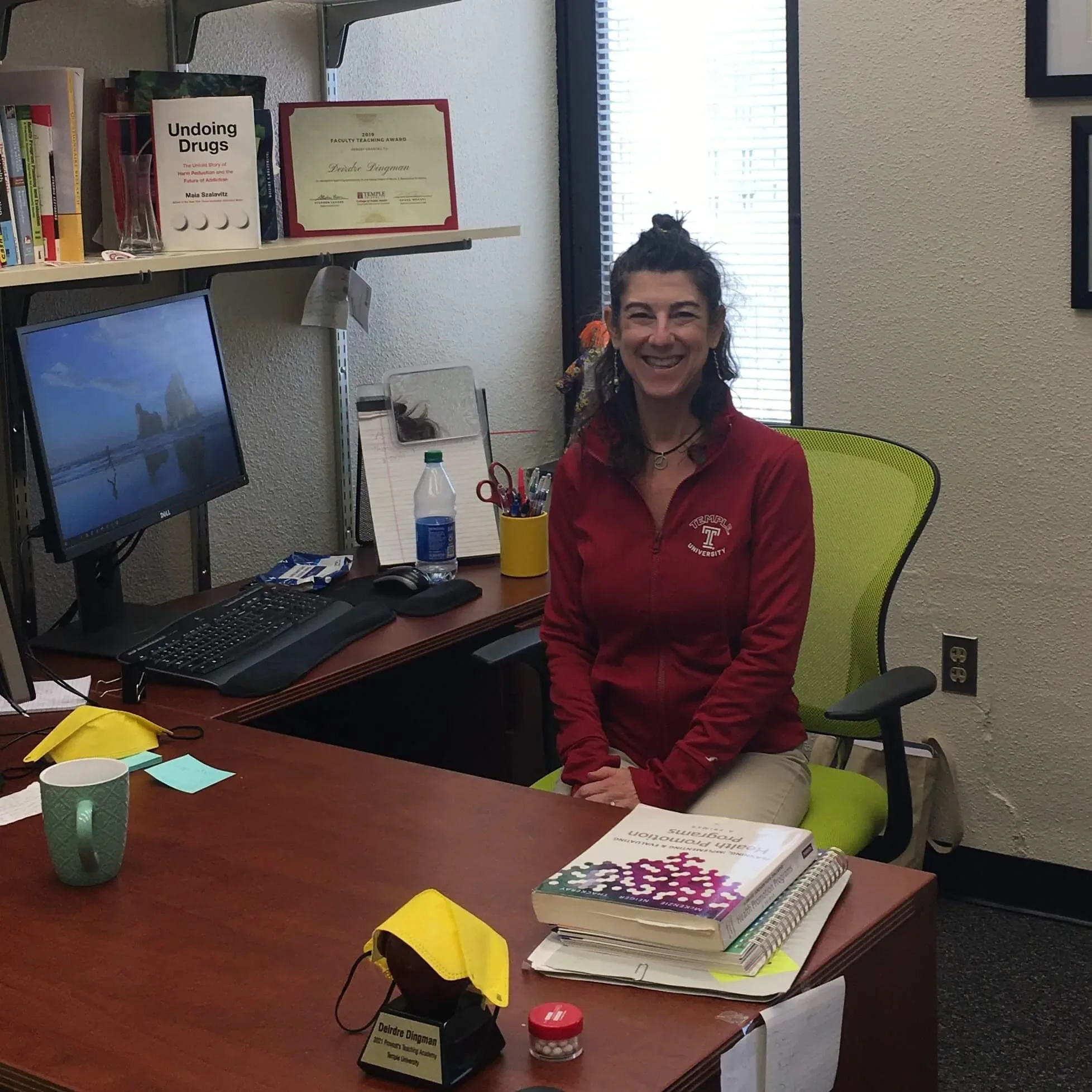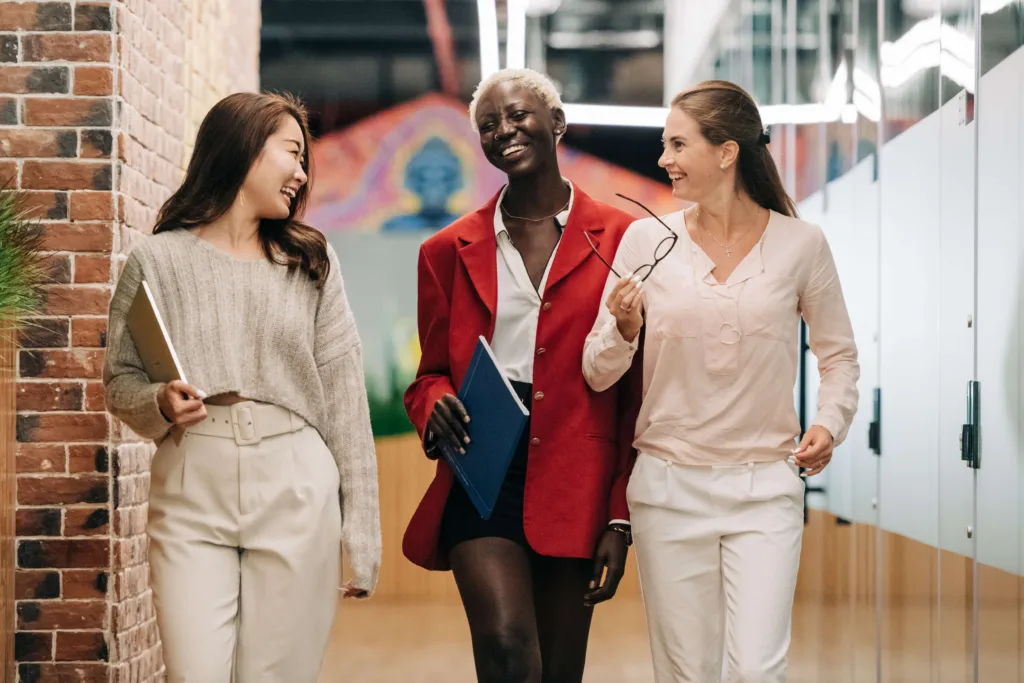Recently on Twitter, The PhD Place asked their followers for some tips on things to do in the early days and weeks of a doctorate program. I am now an associate professor, and I suggested that new students find someone who knows how it all works (especially if you are first generation) and let them tell you. My answer seemed to resonate with many people, so I was asked to elaborate on my advice. Here is Part 1 of 2 of me telling my story, structured as ten pieces of advice to PhD students.
Tip 1 - Find someone who knows how it all works and let them tell you – especially if you are a first-generation student.
I am indeed first generation. First everything: bachelors, masters and doctorate and my journey was atypical in every way. Even so, maybe there are elements of my story that will resonate with you – and encourage you. You are in the right place to find out more about how it all works!
My atypicalness begins with undergrad. I started at a large public university right after high school. By the start of the third semester, I had switched to a community college and a quarter or two later, I was enrolled in a private college out of state. I did not have any scholarships. I had a bit of financial aid, but mostly my parents took out loans because my father so very much wanted the last of his four children to be a college graduate. The reason I didn’t graduate from that last college was situational – an IPV situation that derailed me for several years. Ten years (and three majors) later, I graduated from the same university I started in with a Bachelor of Science in Social Work. When I had returned to college, I was employed, coupled, and raising 3 children.
A few months after graduation, I began a 14-year career as a social worker. Near the end of that career, single again, I decided that I wanted to go to grad school. (My father had died a few years before this.) My employer offered 50% tuition reimbursement and I was accepted into a part time Masters of Public Health program, which meant I worked full time and took two or three 3-hour night classes per week for about 3 years. I thrived in that program. I was a little older than the full-time students, and I had practical experience and a thirst for education and a new career. Many of the students in the program had assistantships; they were doing research. I am not sure when I realized this, but those students gained the advantage. The opportunity to be a graduate assistant gave them more education. I did not incur debt, but I did not get experience (or publications) that would prepare me for a doctorate program. Not that I thought I would end up in one. I do remember students talking about getting PhDs without having to pay for them – getting a ‘full boat’. I had never heard this before, I really had no idea what they meant, but it settled in my brain somewhere.
I graduated from the MPH program right on time, with a near perfect GPA, and plans to start a new chapter of my life, in another state. I think it’s important to say that at this time in my life (and still today) I was single and fiercely independent – no one truly depended on me, so I was able to put my needs and desires first. Within about 5 months of graduation, I was hired as a tobacco treatment specialist for an Area Health Education Center in Florida. A year or so later, my widowed mother relocated to Florida as well, to be near me.
The part of the tobacco treatment specialist job that I liked the best was presenting information – including research studies – to a large audience of health care profession students and health care professionals. I had a lot of energy and passion. I loved learning and sharing. I read journal articles all weekend long. Soon peers began saying things like, “you are the professor everyone always wanted,” and “you should get your PhD”.
Tip 2 - Do not apply to PhD programs without knowing exactly what they are and how they work.
This is the second important piece of advice. Don’t apply for a graduate program in secret, and definitely ask people about the visit and interview before you have said visit and interview.
The first program I applied to was within the university affiliated with the Area Health Education Center that I worked for, but I did not tell anyone I applied, and my references were from my MPH program faculty and peers. I did get invited for an interview and they asked me questions about what I wanted to do (right answers would have been about research, I am not sure what I said) and how I would pay for the program, if I needed an assistantship – that sort of thing. I may have said I wanted to work part time and not relocate closer to the university – it was a 50-minute drive. I recall that one faculty member – one whose work I had studied and was familiar with- really seemed to be offering me a place there. Alas, I did not get accepted. That should be another tip:
Tip 3 - Don’t believe that because the faculty are treating you very nicely during a candidate visit that they are going to offer you a spot.
Not completely daunted – I am not sure why I wasn’t completely daunted – I applied to the new public health doctorate program at my alma mater. This time I told my boss, and she did write a letter. She fully supported my actions, but also said, “You should know that you won’t be the same after. You will not think the same and people will not treat you the same.” I wasn’t sure what she meant then but turns out she was right. I got into this program, I think, because they knew me and because the program was new. I got the full ‘ride’ or ‘boat’ or whatever it was called. My tuition was covered, and I received an assistantship of about $16,800 USD a year. This opportunity allowed me to be a full-time student for the first time since my first year of undergrad. What a privilege! I was 45 years old. I also had to move BACK to North Carolina to do it.
Remember the part about my mom following me to Florida? And that it was my father who valued higher ed? Well, even though my mother was happy when I received my MPH, she was not prepared for the current news. At what I thought would be a celebratory dinner with her, my sister and brother-in-law, my mother burst into (unhappy) tears, said she did not understand why I needed or wanted more education, that I had a good job, and more importantly, how could I leave her. It was gut wrenching.
But I did leave. Entering the graduate program was stressful. It was stressful because of the guilt, it was stressful because of the move, it was stressful because of the finances, and it was stressful because it was unknown.
Tip 4 - Take care of yourself! Make exercise a routine and prioritize it.
I found a small apartment near the university, old building and cheap rent, but in a really nice location across from an arboretum where I would walk nearly every day – and it connected to a path where I could run for miles.
I exercised every day of the week, different things, weight training, swimming, jogging, cycling. No matter how pressured or time constrained I felt, I did my exercise.
Anyways, when the movers arrived and carried my furniture and household items into my new – much smaller – space, I felt entirely overwhelmed, panicked, and it showed. One of the movers said, with empathy, “Don’t worry ma’am, it will be ok.” I may have burst into tears, but I remember his kindness all these years later, and it was ok. I made the apartment as welcoming as I could.
My first duties as a grad assistant were mostly managerial and secretarial. I also got to do some TA work grading papers. But mostly I arranged visits for interested candidates, updated the MPH handbook, arranged MPH advising night. I was good at these things. My advisor/supervisor called me ‘a gift.’ I worked on those activities at night, on weekends, and during holiday visits with my mother. I did not know then that they were not the things I should be doing. At the time I was on department funds instead of being funded by a faculty member with a research grant – though I did not know the difference because it was all 100% new to me.
Tip 5 - Unless you are literally getting a PhD in philosophy, just get the cliff notes.
That first semester was hard. The job was hard, the classes were hard, the cohort was small (i.e., everyone was seen), and as I told my Mom when she questioned my feeling incompetent, “When everybody is an A student, we can’t all be the smartest person in the room”. And the readings, I had no idea what those philosophers were talking about or what those words met. As some others mentioned on Twitter recently, I never want to hear the words epistemology and ontology again… ever. It’s ok if you don’t understand the articles your professor tells you to read – you are NOT stupid! It is ok to just get the cliff notes. But of course, you do need to understand how to read research articles, which you should be pretty good at if you’ve gotten this far!
For the final 5 tips from my PhD experience, stay tuned for ‘Part 2’ in my next article.




